A/T IDENTIFICATION ALL THM TRANSMISSIONS

MODELS/YEARS: ALL THM TRANSMISSIONS
This information is to assist the technicians in the field in properly idenfifying the transmission identification (I.D.), its meaning, and where it is located on the transmission. Therefore, this bulletin will explain those items for currently manufactured THM automatic transmissions.
The transmission identification tag or stamped identification identifies such information as the transmission type, model year, model, serial number, Julian date, etc.
NOTICE: Anytime assistance is needed concerning a transmission condition, the technician must have the following information: the transmission type, model year, serial number, Julian date, etc., at the time the inquiry is made.
Refer to the following information and illustrations which will explain all transmission identifications.
Explanation of All Key Transmission Identifications
Model Year: Tells what model year the transmission was built.
Model: Transmission model identification.
Julian Date: Tells what day of the year the transmission was built. It is also very important to remember that the transmission model year starts MID YEAR. This means the first transmission built in any year start with a higher Julian date.
Example: If the first transmission in 1984 was built on Aug. 5 then the Julian date starts at 218 and goes to 365 (December 31). The Julian date will then drop to 001 (January 1), and then continue to 217 (August 4. 1985).
Serial Number: Tells what sequence the transmission was built.
Shift Built: Tells what shift the transmission was built.
THM 125/125C ------------ The THM 125/125C transmission is built at Ypsilanti, Michigan and Windsor, Canada. Transmissions built at Ypsilanti, Michigan use serial numbers; and beginning 1985 model year, Julian dates have been added to the nameplate. Transmissions built, at Windsor, Canada use Julian dates. However, the transmission identification tag location is the same.
THM 200C
The THM 200C transmission uses serial numbers; and beginning 1985 model year, Julian dates have been added to the nameplate.
THM 200-4R
The THM 200-4R transmission uses Julian dates.
THM 250C
The THM 250C transmission uses Julian dates.
THM 325-4L
The THM 325-4L transmission uses serial numbers; and beginning 1985 model year, Julian dates have been added to the nameplate.
THM 440-T4
The THM 440-T4 transmission uses Julian dates and serial numbers.
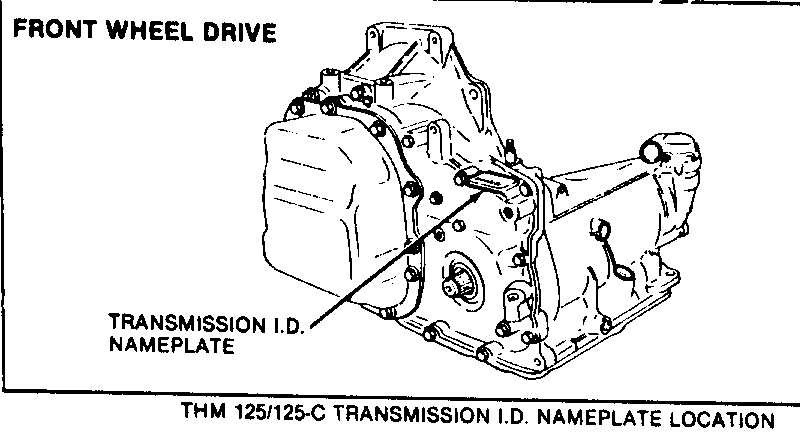
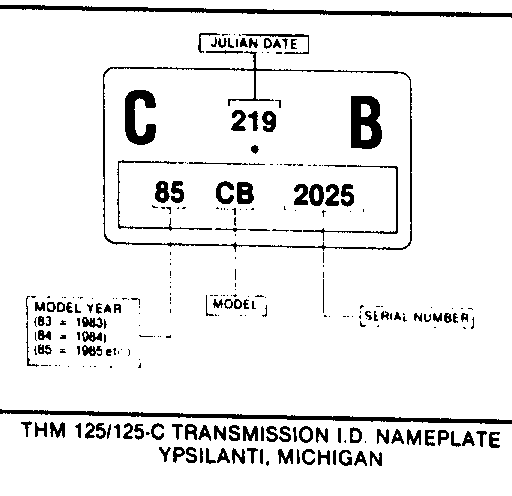
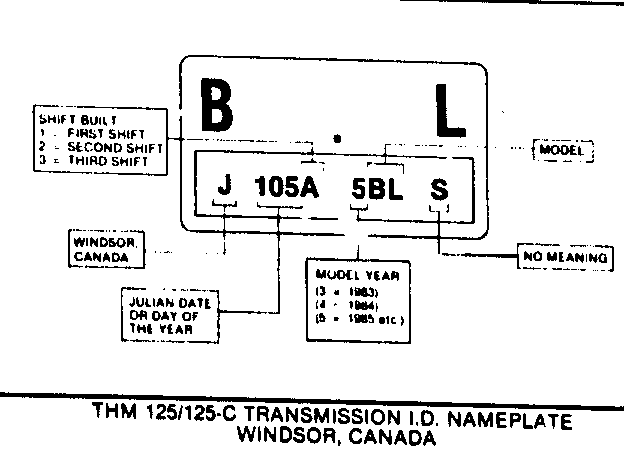
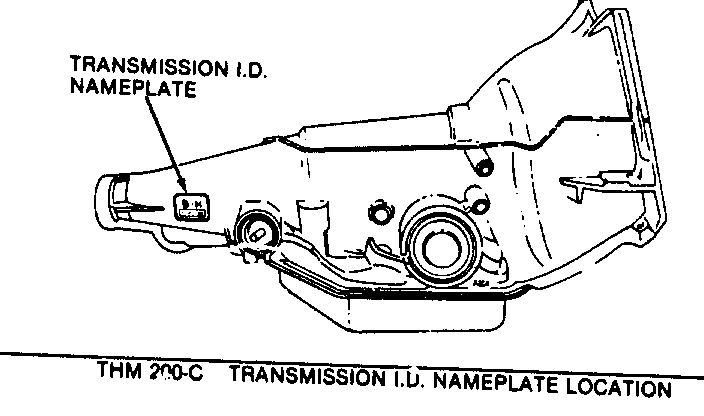
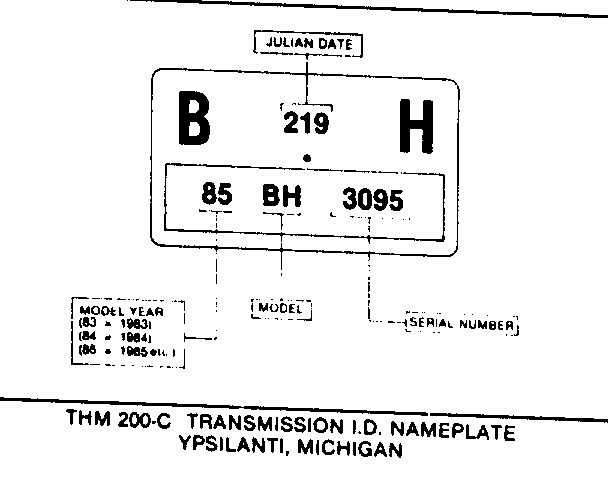
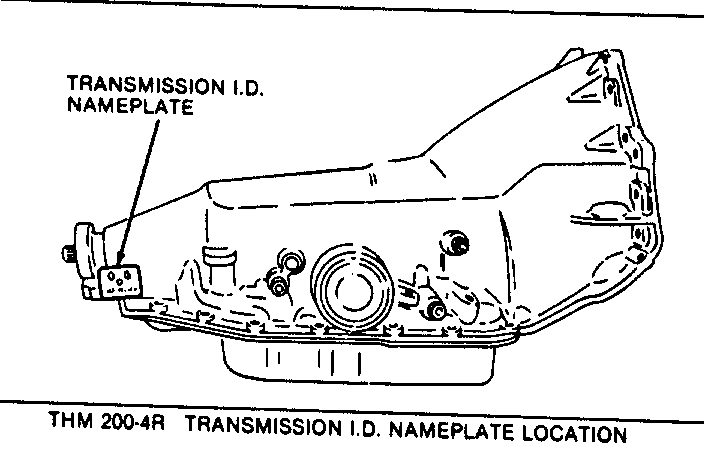
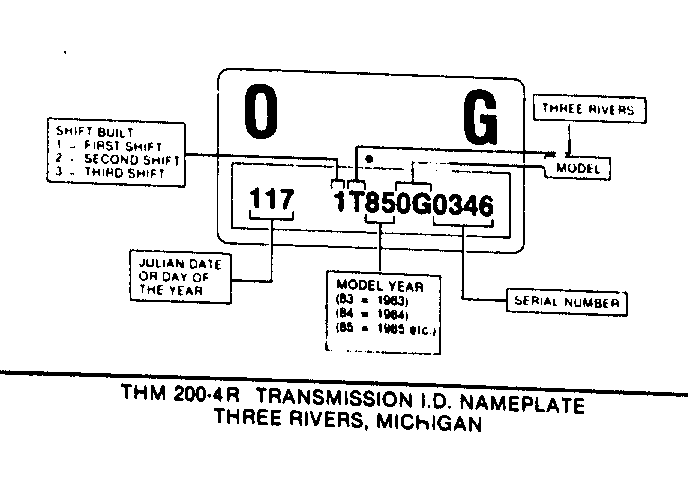
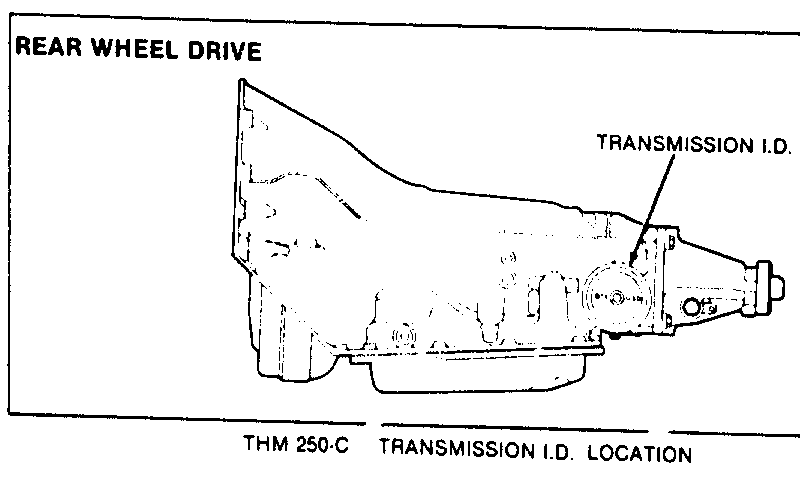
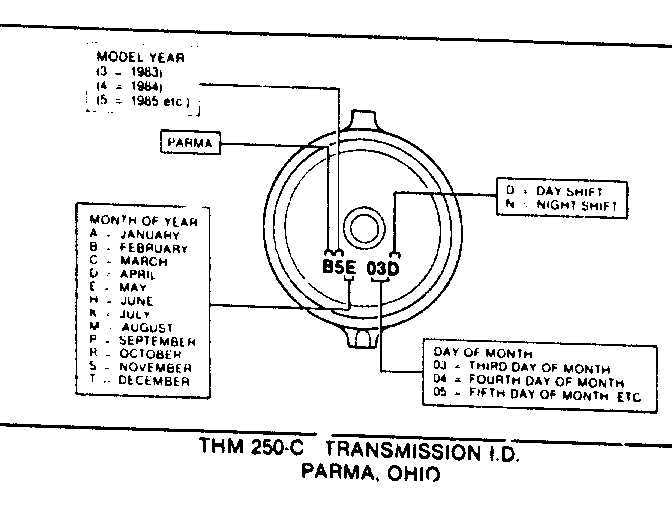
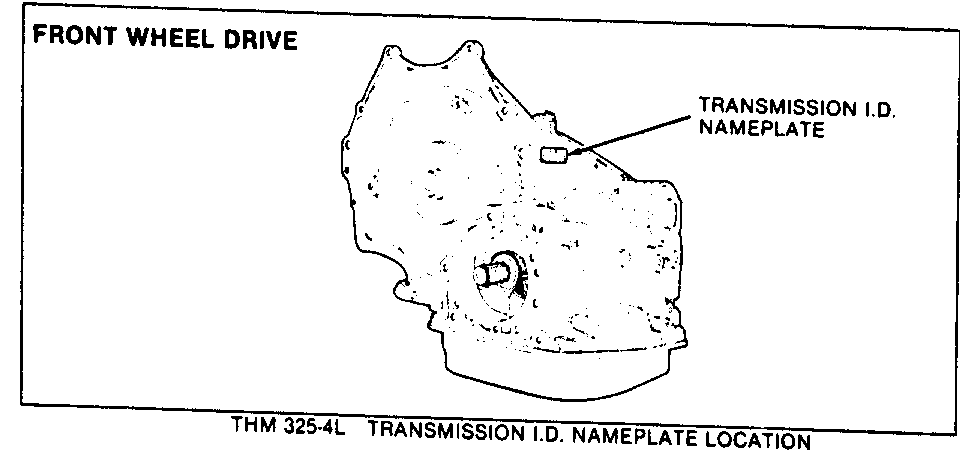
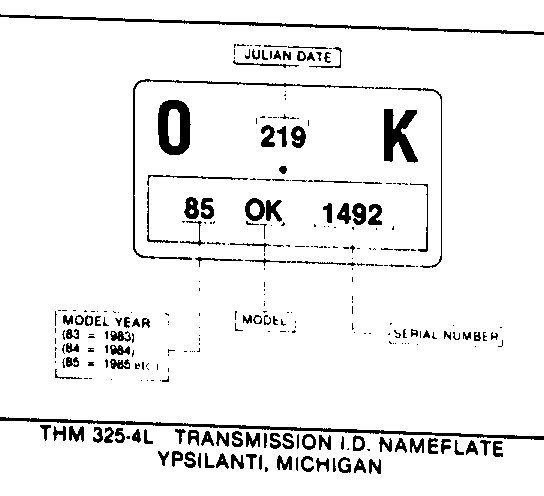
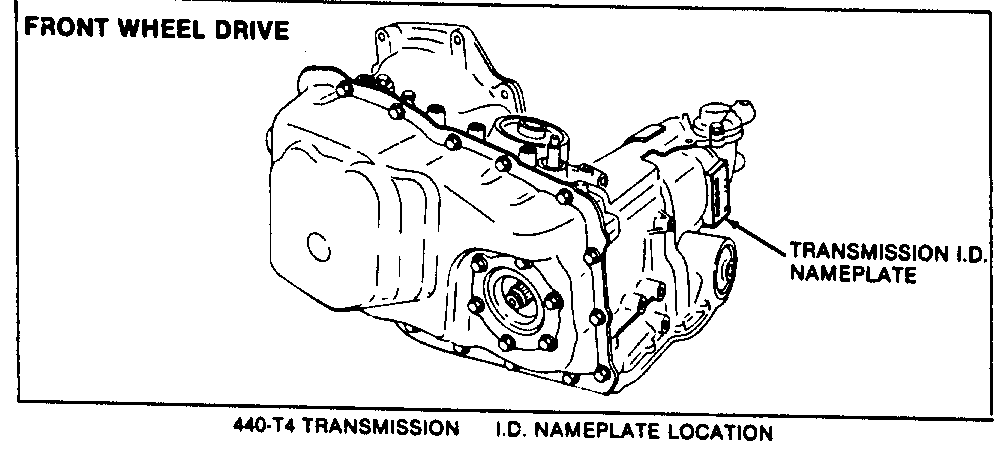
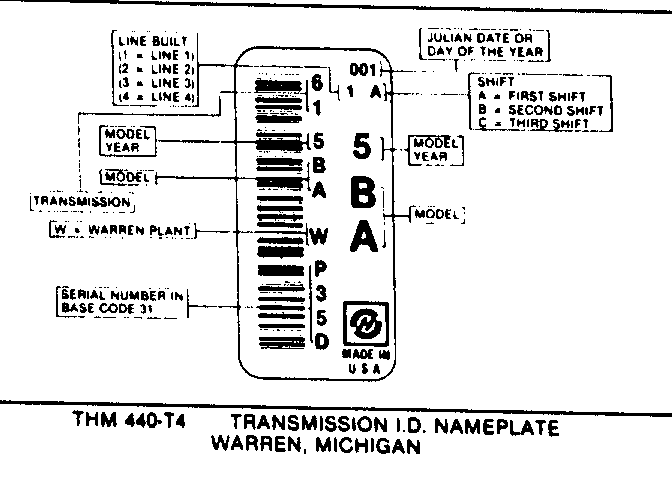
General Motors bulletins are intended for use by professional technicians, not a "do-it-yourselfer". They are written to inform those technicians of conditions that may occur on some vehicles, or to provide information that could assist in the proper service of a vehicle. Properly trained technicians have the equipment, tools, safety instructions and know-how to do a job properly and safely. If a condition is described, do not assume that the bulletin applies to your vehicle, or that your vehicle will have that condition. See a General Motors dealer servicing your brand of General Motors vehicle for information on whether your vehicle may benefit from the information.
